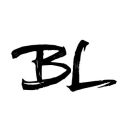We've all heard it before — being a woman in tech isn't easy.
Though the percentage of female employees working at major tech companies like Twitter and Microsoft has grown, women are still far less likely to hold leadership positions or technical roles.
Boston can count many powerful women among its leading tech influencers, but we still have a long way to go in achieving equality in the workplace. We caught up with eight female execs to learn more about how they succeeded in Boston tech and how they hope to level the playing field over the course of their careers.
Rapid7 provides security data and analytics solutions that help organizations implement an active, analytics-driven approach to cybersecurity.
What is it like being a female leader in tech?
Honestly, it can be strange sometimes. The field is overwhelmingly male and many times I am the only female in a group or working on a project. There have been times when people assume that I am in a non-technical role or someone’s assistant, but I have found that most times, once the conversation or work starts those assumptions or perceptions go away. It can be frustrating to walk into a situation knowing that I may have to prove my value or my skills every single time rather than having people just assume that I am competent and know what I am doing…BUT I love the work that I do and I have been very fortunate to work with great teams who couldn’t care less what your gender is as long as you are there to work hard, to be part of the team and support each other. Working with teams like these are one of my favorite things about working in tech because it takes a lot of different people with different skill sets to make something work or to bring an idea into existence.
What do you think of the state of women in tech? What about Boston specifically?
I think the state of women in tech varies greatly across geographical areas and companies. There are pockets where things are greatly improving and gender seems like not as much of an issue than it did in previous years — like my experience has been. However, I still hear many stories of discrimination, harassment and toxic work environments. Sadly, we have seen that sometimes all it takes is one toxic employee and leadership that doesn’t address the issue to create a hostile environment. My experience is that Boston is an amazing place to be a woman in tech. There are so many schools and organizations that support and encourage women in technology roles, and a culture that clearly states that discrimination is not acceptable. I can’t say that Boston has solved gender bias or discrimination, but I do think that the tech community is collectively working toward bridging the gap.
How do you foster diversity and/or female entrepreneurship in your role?
Threat intelligence in network security is a relatively new field, which means that everyone is still learning. When I have women I am mentoring or teaching (I also teach for SANS) my goal is to create an environment that is non-threatening (and maybe even fun!) to help everyone learn. I have found that this gets many people, especially women and men who are new to technology, excited about what we are learning and how they can apply it. No one here is an expert in everything, and making it safe to ask questions and provide new perspectives helps foster the team mentality that I think is critical to our field.
What is the best piece of advice you have for young women in tech?
Ask questions, be curious, don’t feel like you have to know everything, or have all of the answers in order to be successful in this field. Speak up when you feel that someone, yourself included, is being mistreated or discriminated against. Don’t let a bad experience or a toxic environment make you leave the field. If working in technology is something you love, then there are many people out there (like me!) who can help find a place where you will be able to use your skills without feeling threatened or marginalized.
BoardOnTrack is a guided step-by-step program that builds better boards through a combination of expertise, training and powerful web-based tools.
What is it like being a female leader in tech?
Interesting. I have served in many leadership capacities over a 30-year career with helping to found and scale organizations in the developing world as well as in the US. But it is only in my current role as a software entrepreneur that I have really seen and felt the effects of significant gender biased.
What do you think of the state of women in tech? What about Boston specifically?
We have a long way to go! On the one hand, there is a growing network of amazing women who are actively supporting each other in the tech space which is great. On the other hand, the funding community is incredibly skewed to white men. Inherent biases really effect the funding process, who serves on your board etc. I found the blatant sexism in the Boston tech scene pretty shocking when I went out to raise my first round of funding. It was quite an eye-opening experience.
How do you foster diversity and/or female entrepreneurship in your role?
Our team actively talks about my role as a SheEO. My two male co-founders who had been in tech for 20+ years have found the treatment I receive by vendors, potential investors etc. even more shocking than I did, and have done a great job of making sure we talk about it as a team and reflect on what we are doing to change the situation. They are both amazing dads and I know our experience has effected their thoughts on parenting both their son and daughters. Personally, I try to lend support, advice, guidance to as many other women as I can. And I try to be a truth teller. This is a topic most people in the tech space still just don’t want to talk about, especially here in liberal Boston.
What is the best piece of advice you have for young women in tech?
Heads down, and deliver results. Results speak for themselves. But, with that said, be a truth teller. When an investor suggests you should wear a skirt to the pitch, don’t be shy about telling him how inappropriate that is!
Crimson Hexagon provides social media analysis software that helps hundreds of brands and agencies answer critical business questions using social data.
What is it like being a female leader in tech?
I am proud to be a female leader in the technology industry, and love being CEO — in fact, I think I was born to be a CEO! It is not by chance that our executive team is 50:50 men and women. With a female CEO, it is easier for us to attract strong female candidates for leadership positions, and the men on our team are also a special breed: they are people who respect professional women and have strong women in their everyday lives. In putting our executive team together, we did not have a rule that we wanted the makeup to be 50:50, but it fell into place that way when we were selecting the best possible candidate for each position. Our competitive advantage is the ability to attract a stronger pool of female candidates.
What do you think of the state of women in tech? What about Boston specifically?
Even the best tech companies report one-third female employees, and only a quarter in leadership positions. We need more women to think about technology as a career option and to NOT self-select out. After all, the road to wealth creation starts with equity ownership, and equity ownership often starts with smaller companies — technology companies, in particular. Women need to pay attention to this and follow the money. As for Boston — my opportunity to meet senior female business leaders (including many from the technology industry) started in 2007 when I opened a Golden Seeds group here. The reason: my observation that in the first couple of years of investing in women-led startups (2005-2006), Golden Seeds had more investments in Boston than in New York. That’s a tribute to the industry here, including the number of successful Boston women entrepreneurs. There are strong networks here for women in technology and women entrepreneurs, and no shortage of role models: Diane Hessan, Robin Chase, Jean Hammond, Sheila Lirio Marcelo and Jules Pieri to name only a few from a very long list.
How do you foster diversity and/or female entrepreneurship in your role?
Not surprisingly, women are almost three times more likely than men to think their gender will make it harder to get a raise, promotion, or chance to get ahead. With four women on the Crimson executive team, women candidates see role models at the top of our company, and can, therefore, see their aspirations will not be misplaced. This drives more women into our pool of candidates for any one job. If you do not have women applying for jobs, it will be very difficult to increase the gender diversity in the company. And what’s good for gender diversity is also good for ethnic and cultural diversity. We are looking for people who think differently from us, not more people who think the same.
What is the best piece of advice you have for young women in tech?
I would like to encourage more young women to choose technology as a career. A key thing for women to know is that we hire people from all backgrounds and disciplines — not just mathematicians and coders. For example, we hire designers and writers into our marketing team, and graduates of all sorts into our large client services team. And note, the client services team is responsible for 50 percent of our revenues so this is definitely not the “back office.” This is our most customer-facing team. Software sales is also an excellent area for women to be successful professionally and financially. For the past three years, we have had a woman as either the No. 1 or No. 2 sales executive. We also had a woman coder whose major was English literature — so women should know that anyone can learn how to code too. Furthermore, women should get comfortable with some new mantras. Try saying out loud, “I was born to be a CEO” or “I like being the boss.” Just go for it!
LearnLux teaches millennials personal finance skills through online learning tools, connecting them with financial institutions so they can take action.
What is it like being a female leader in tech?
It's amazing to be able to pave the path for other women and know that I'm making this a little easier for everyone who comes after me.
What do you think of the state of women in tech? What about Boston specifically?
There isn't enough pattern recognition for women being successful in tech yet, especially in Boston. I think we're at an interesting point where as a community we are starting to recognize and talk about overt sexism, but we haven't been able to stop or acknowledge subtle sexism.
How do you foster diversity and/or female entrepreneurship in your role?
I run a financial technology company, which happens to be one of the most male-dominated industries. I am able to foster diversity in so many ways. I hire and build my team differently, build products with different user groups in mind, and have been hosting dinners to get more women into tech and venture. I think one of the biggest things we can all do is change the language we use when talking about women starting companies. Jennifer Hyman from Rent the Runway said, "When's the last time you heard a female founder described as a visionary? A genius? Think about the words used to describe prodigious success. They're mostly gendered, and that gender is male."
What is the best piece of advice you have for young women in tech?
Many people think that being a young woman in tech is a deterrent, but it has allowed me to see how the financial industry has been made for one type of person for so long and excluded so many other types of people. Having a different background allows me to build a new vertical in financial services for everyone who thinks they are bad at personal finance, when really the system is just bad for them. I would tell people to use what they or others think are vulnerabilities to see the gaps in markets. It might end up being your biggest advantage.
DataGravity is a software company focused on providing IT and data management services.
What is it like being a female leader in tech?
I have been in technology for a long time. A lot of the time, my gender has had no impact on my ability to be a successful leader in tech. Most days, it’s to my advantage, since my peers and venture capitalists (VCs) are trying hard to have a fair playing field. However, some days it’s a disadvantage because you tend to not be invited to social events where relationships are built. People don’t realize it, but there’s a higher bar for women’s ideas to be heard and taken seriously. Watching the room during a meeting with partners, I smile when a strong female personality goes for it, but cringe a little when they hold back. Women, for whatever reason, seem to be more reserved in forums. To be heard, they need to make space, if you will, and many don’t want to do this. In my company, I specifically make space so everyone has a voice.
What do you think of the state of women in tech? What about Boston specifically?
I believe that Boston has done well with diversity in general. Ideas and leadership are important here. Ellen Rubin at ClearSky Data is a strong CEO and Elizabeth Lawler, CEO of Conjur, and Julia Austin, CTO of Digital Ocean, are also good examples. Gail Goodman, former CEO of Constant Contact, was the driving force behind that company.
How do you foster diversity and/or female entrepreneurship in your role?
Sometimes I feel like Lucy from the Peanuts with her “five cents for advice” cup. Generally, when women reach out to me, they are looking for encouragement and advice. A few ask me to be on their board of directors or an advisor to their company. It is sort of funny, but sometimes I believe I talk more people out of launching a startup then actually doing it. When I give advice to anyone looking to get into the startup business, I make sure to tell them this: Startups are hugely rewarding, however, they are high risk with a huge commitment level. They aren’t for everyone, especially in a leadership position, but there are a lot of opportunities to be entrepreneurial in a larger company.
What is the best piece of advice you have for young women in tech?
Be yourself. Don’t change for other people, but just as importantly, don’t expect others to change to accommodate you. Be confident and share your ideas. Don’t be afraid to get smarter and learn from your experiences. You can’t succeed if you don’t try. If you try, expect that sometimes you won’t be right. People will tell you it’s not personal, but I don’t know many women who don’t take things personally. It’s ok, but it just can’t define you. I am still working on accepting this advice myself.
Intelligent.ly offers a wide variety of educational resources for startups, including 90-minute skills-based workshops, weekend coding classes and six-month management training programs for entrepreneurs who want to hone their skills.
What is it like being a female leader in tech?
There is an additional responsibility. You are not just seen as a leader, individually speaking your mind, but need to be conscious that you are speaking up for an underrepresented group. In addition, at Intelligent.ly, since we provide leadership development for rapidly growing tech companies, we need to be examples and embody the leadership best practices that we teach.
What do you think of the state of women in tech? What about Boston specifically?
While there is work to be done, the fact that the conversation is happening exemplifies the shifting tide. Just in the last couple of years, I have seen more females get promoted up the management track. Early in our Exchange program — say 2 plus years ago — we would find females made up as little as 15 percent of our audience. Companies identify their high-potential, high-performing new managers and nominate them into the program. Over the past two years, I have seen that number climb and now we often have close to a 50/50 split in our leadership programs. This trend is very reassuring. Topics of diversity and inclusion are on the forefront.
How do you foster diversity and/or female entrepreneurship in your role?
I have a unique opportunity in my role, as I get to work with new and emerging leaders across the Boston landscape. Both males and females in our programs have real conversations about how diversity and gender biases currently look and should look. The greatest gift is that our program fosters vulnerability and we see people opening up around these potentially divisive topics. In addition, with our focus on building a community of leaders at Intelligent.ly, we have a speaker series in which we actively ensure our speakers are a diverse group of entrepreneurs and tech leaders, sharing their unique paths.
What is the best piece of advice you have for young women in tech?
Raise your hand. When a job description goes up, women have a tendency to assume they need to meet or even exceed all the desired requirements before applying. I see this not only when it comes to applying for a role, but even in how often women hesitate to speak up in meetings. My advice to young women in tech is to be confident in your abilities and speak up — don’t wait for the tap on the shoulder, raise your hand. Whether it is for a promotion, a new initiative or project, or just to share your insight in a meeting — have the confidence in your ability and in your voice. Now, in order to substantiate that confidence, I encourage women — in fact all young people in tech — to be continuous learners. Read, ask questions, be curious in what is going on, not just in your role or area of expertise, but in your organization. The more awareness and curiosity you have, the more apt you’ll be to recognize gaps and opportunities.
ClearSky Data provides a global storage network that simplifies the entire data lifecycle and delivers enterprise storage as a fully managed service.
What is it like being a female leader in tech?
I don’t think being a female should play a part in being a leader in tech. Some people like to point out that I’m one of the few women executives working in a very technical space, but I choose to ignore that small descriptor. My job is about knowing what I’m good at and executing on it — it shouldn’t matter if you are a male or female. For me, knowing the market, the product and the customer is key to earning my colleagues’ trust as an executive and thought leader.
What do you think of the state of women in tech? What about Boston specifically?
We’re in a very different position from when I started in the business, but sometimes the way we talk about the state of females in the industry is holding us back. We can no longer look at the conversation in terms of male vs. female and, “what’s the difference between the two?” When we talk about women’s issues, we need to talk about the realities of their careers and share ideas about the next step, instead of looking back and asking questions like, “what challenges have you overcome as a female in tech?” The pool of talent and experience in Boston is wonderful. With the influx of startups and major companies popping up in the area, there are so many incredible individuals in leadership roles for anyone in tech to look up to.
How do you foster diversity and/or female entrepreneurship in your role?
The Boston tech community is an inherently diverse group and I spend a lot of time networking with them and mentoring a variety of young entrepreneurs. I like to speak from personal experience and share my story about what it was like to enter the industry as a female at a young age. In my many years in the tech space, I’ve established trusted relationships with my colleagues and learned that, at the end of the day, if you’re good at your job, you’re going to succeed. We aren’t helping women by judging them differently or telling them how to get into the industry as a female. Education and advice needs to be exactly the same for all, regardless of gender.
What is the best piece of advice you have for young women in tech?
Don’t think about being a woman in tech. Go about your day and job only thinking of yourself as a passionate professional working in tech. Hang out with all sorts of smart and interesting people working in the industry and see how they approach different tasks and strategies.
Founded in 2015, BeautyLynk is an on-demand beauty service that brings licensed beauty professionals directly to women at home or work.
What is it like being a female leader in tech?
Starting up in Boston has given me a slightly different experience then the usual 'woman in tech' stories that we hear come out of Silicon Valley. Boston has an equally tight knit tech community, but I think because we're a smaller ecosystem everyone has just been super supportive and forthcoming with both resources and advice.
What do you think of the state of women in tech?
The biggest thing happening with women in tech is that everyone is really seeing and accepting that we can be a true force in business and build great companies and get the same kinds of returns as the men. It may have taken us a while to get here, but everyone is paying attention now. I also think it's great that there are an increasing number of women who are themselves in a position to assist, through funding or other resources/support, in grooming and helping the next generation of women entrepreneurs thrive. It's a really exciting time to be a woman in business.
How do you foster diversity and/or female entrepreneurship in your role?
As a black woman, inclusiveness is always top of mind, whenever we're making hiring decisions or thinking about who our partners are or will be. For us, inclusiveness is more than just ethnicity; it's about gender, diversity of thought, perspective and relevant experiences. And as it relates to fostering or inspiring other women to consider entrepreneurship, the best thing I can do at this point is lead by example and share my trials and triumphs with other women.
What is the best piece of advice you have for young women in tech?
You have to have a impenetrable belief in yourself. You're going to be pulled in so many different directions and get conflicting advice all of the time, but you have to have a core belief system in yourself and in what you're building or doing that you can always go back to in order to center yourself in a way that helps you determine the best path forward.
Know an awesome female leader in Boston tech? Let us know or tweet us @BuiltInBOS














